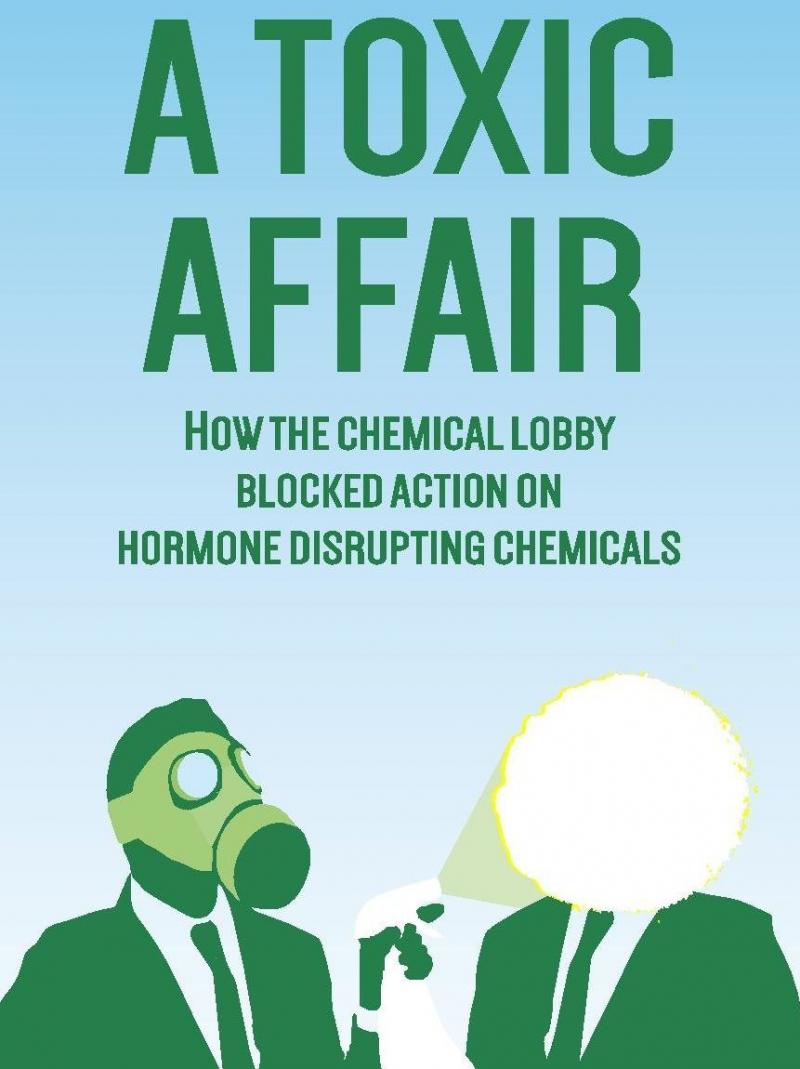
A Toxic Affair: How the chemical lobby blocked action on hormone disrupting chemicals
An investigation led by research and campaign group Corporate Europe Observatory (CEO) and journalist Stéphane Horel exposes corporate lobby groups mobilising to stop the EU taking action on hormone (endocrine) disrupting chemicals (EDCs). The report sheds light on how corporations and their lobby groups have used numerous tactics from the corporate lobbying playbook: scaremongering, evidence-discrediting, and delaying tactics, as well as using the ongoing TTIP negotiations as a leverage. But industry's interests were also defended by actors within the Commission.
(Traducción en castellano hecho por Ecologistas en Acción: descargar PDF aqui)
Endocrine disruptors are chemicals that are present in everyday products – from plastics and cosmetics to pesticides. Because of their ability to interact with the hormonal (endocrine) systems of living organisms, they are suspected of having severe health and environmental impacts.
EU law demands action be taken on endocrine disruptors, with clear deadlines set. According to these rules, if a chemical is identified as an endocrine disruptor, a ban follows. The current approach is that chemicals are assessed following risk assessment procedures and safe levels of exposure are set accordingly. However, for endocrine disruptors it might be impossible to set such 'safe' levels.
The Directorate-General (DG) for the Environment of the European Commission was put in charge of establishing a set of scientific criteria for 'what is an endocrine disruptor'. The chemical industry lobby was up in arms at the potential banning of some EDCs. The main lobby groups involved were the chemical and pesticide lobbies (CEFIC - European Chemical Industry Council & ECPA - European Crop Protection Association), and the corporations at the forefront were BASF and Bayer. But they found allies in various member states, actors within the European Commission, and in the European Parliament.
Read the press release here.
Download the report here.

Comments
Organic is the way to go. It is proven that mono crops, prairie style farming without trees to bring minerals from the deep soil, chemical fertilizer etc. is bad for all species. Humans are now deficient in many minerals even though they are well fed, they are nutrient poor.
Lobbyists should not have the ear of those who form policy that effects populations.
Farms who use chemicals should have to state what is used in the same way that organic farms have to prove their status.
Crops and animals which enter the food chain having been grown, fed or grazed on land sprayed with Glyphosate or other chemicals should be clearly labelled. GMO food should be clearly labelled as should non-GMO, that way the consumer has information and choice.
Western countries as the site of production of toxic compounds have already developed ways to manage and cope with consequences somehow via regulations wide NGOs and community workers activities but the situation in most developing countries and in particular Middle Eastern countries is different and people and environment are highly exposed to these ever increasing millions of chemicals and their metabolites and possibilities of synergism. Now that EU REACH laws and regulations are leading the World for toxic pollution regulation and prevention they better to think also to give immediate hand to nearby Middle Eastern countries with no regulatory systems and absolutely no enforcement system.